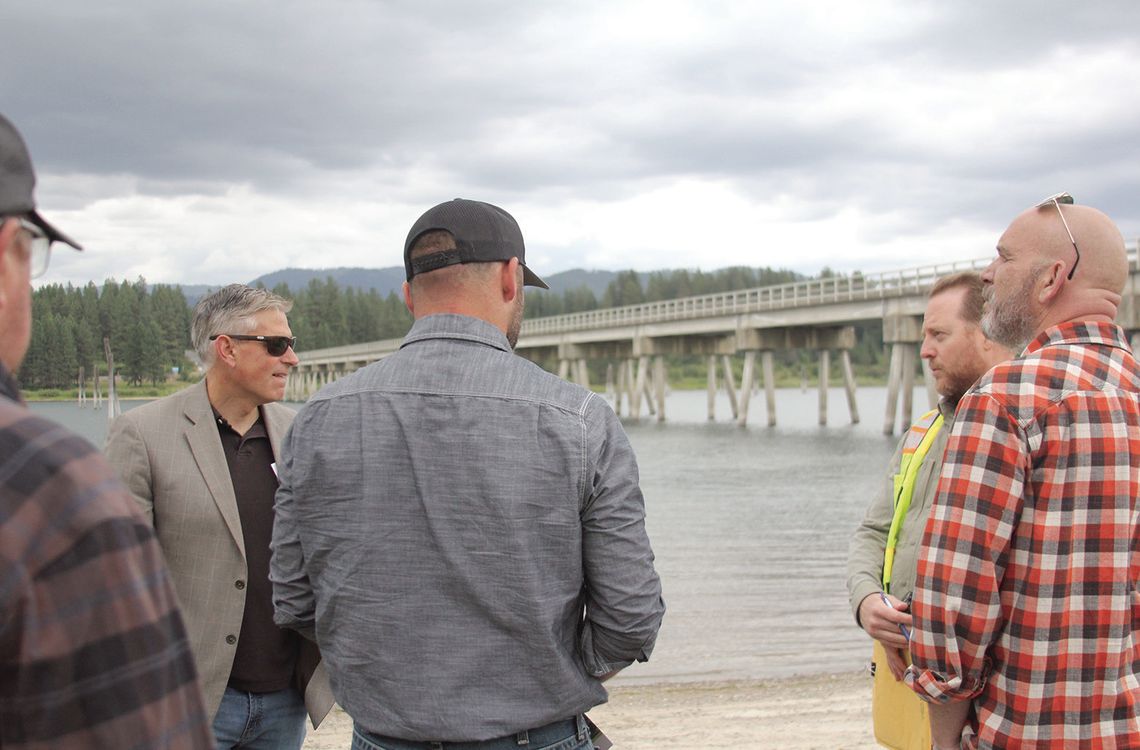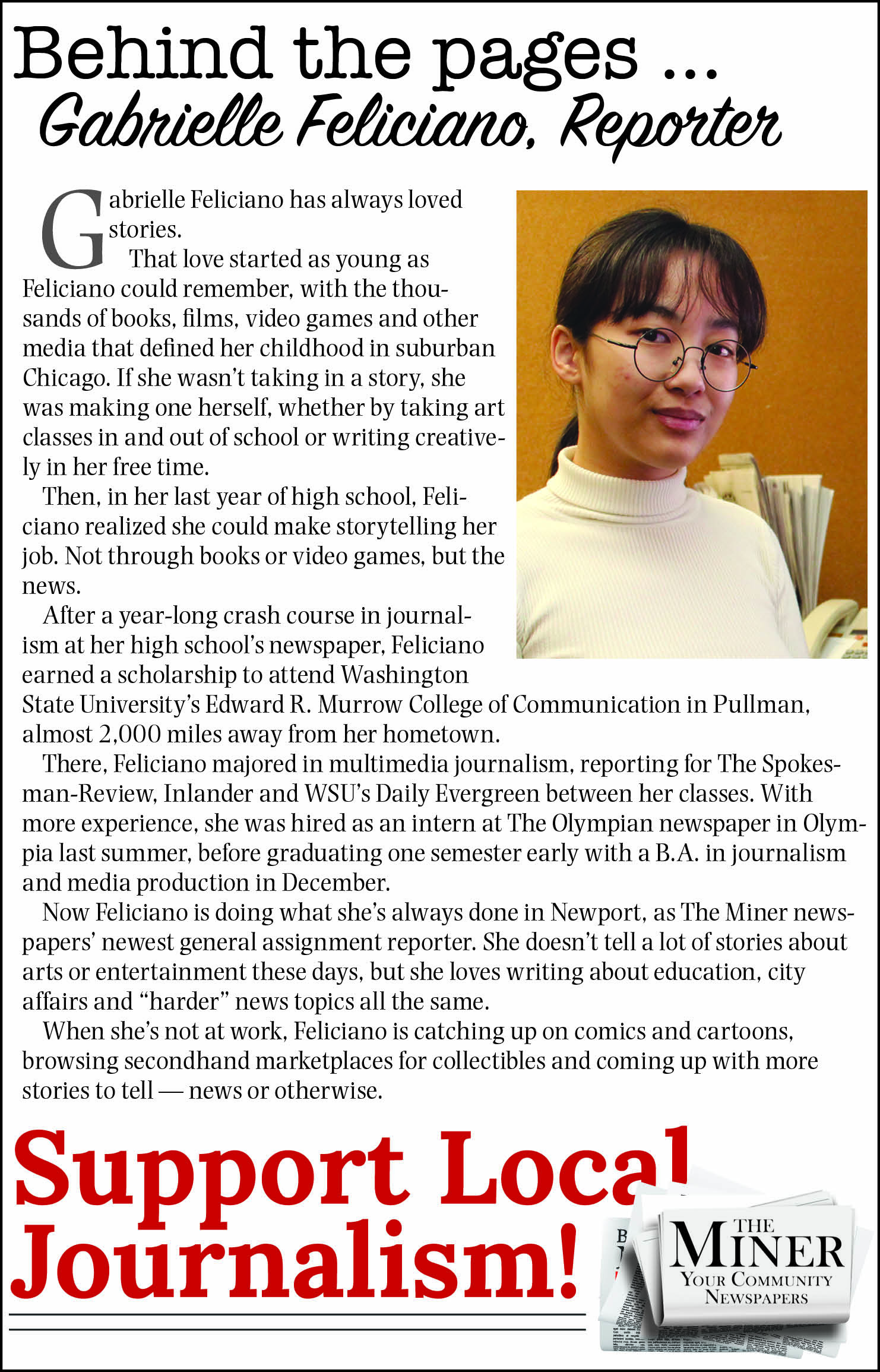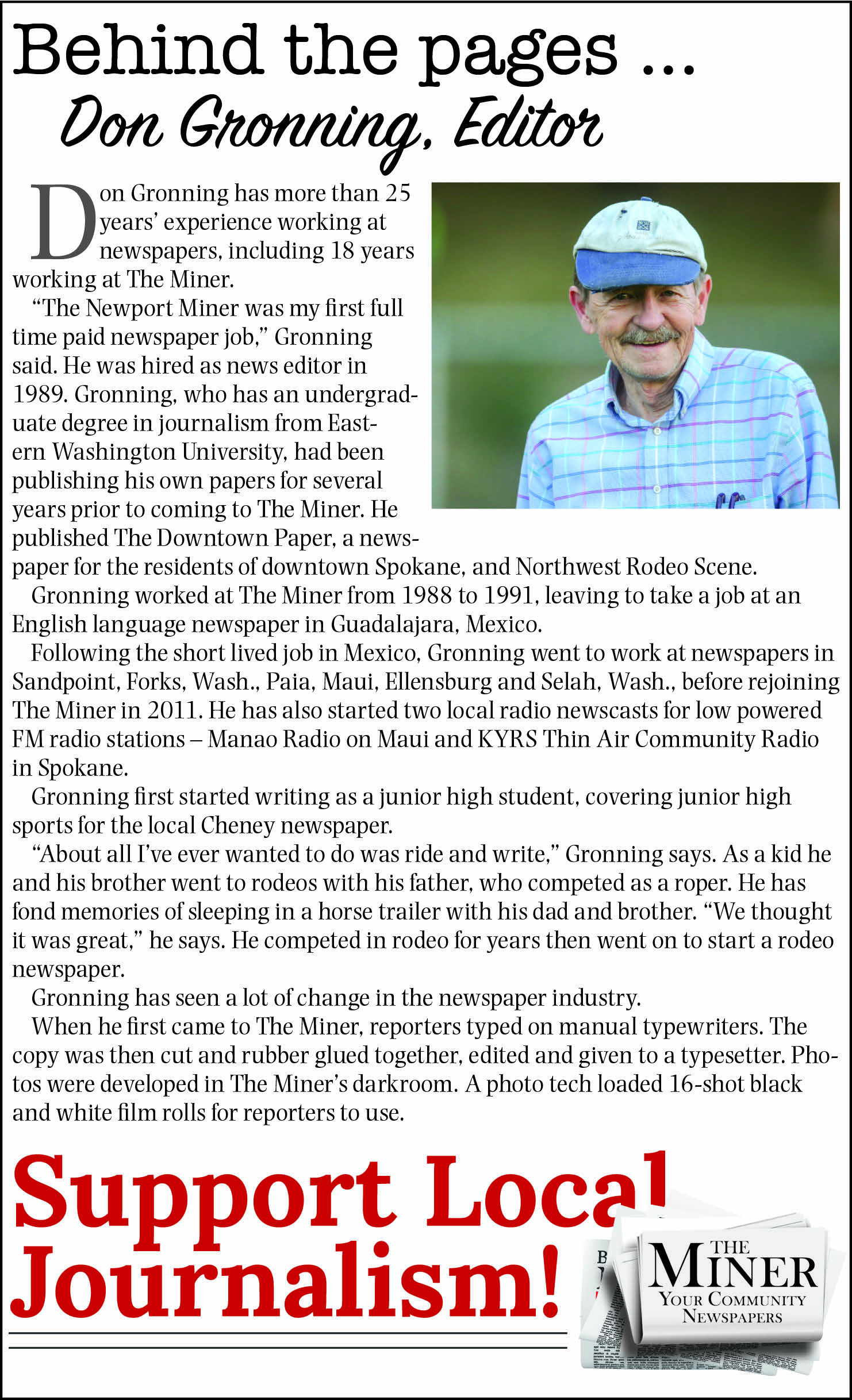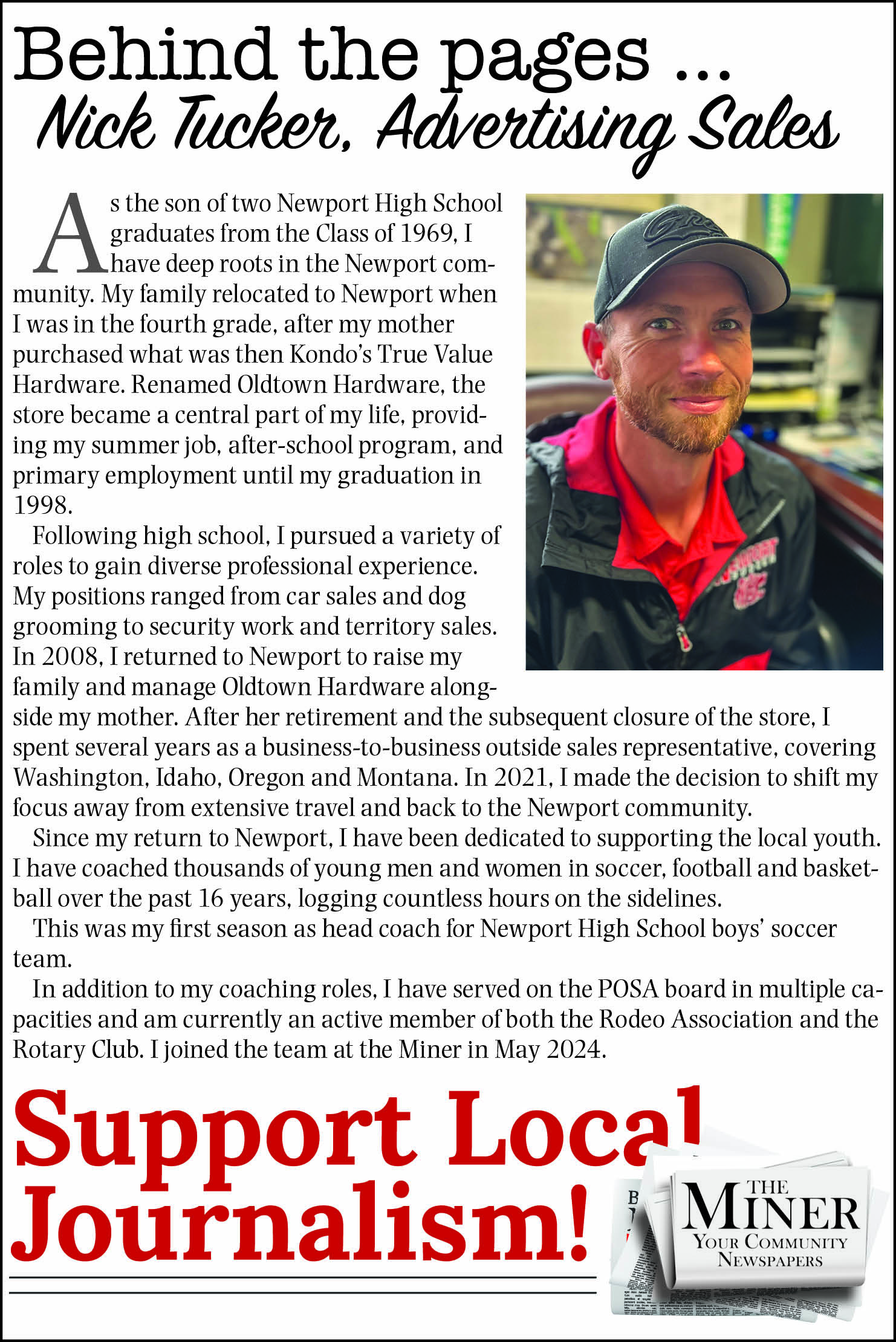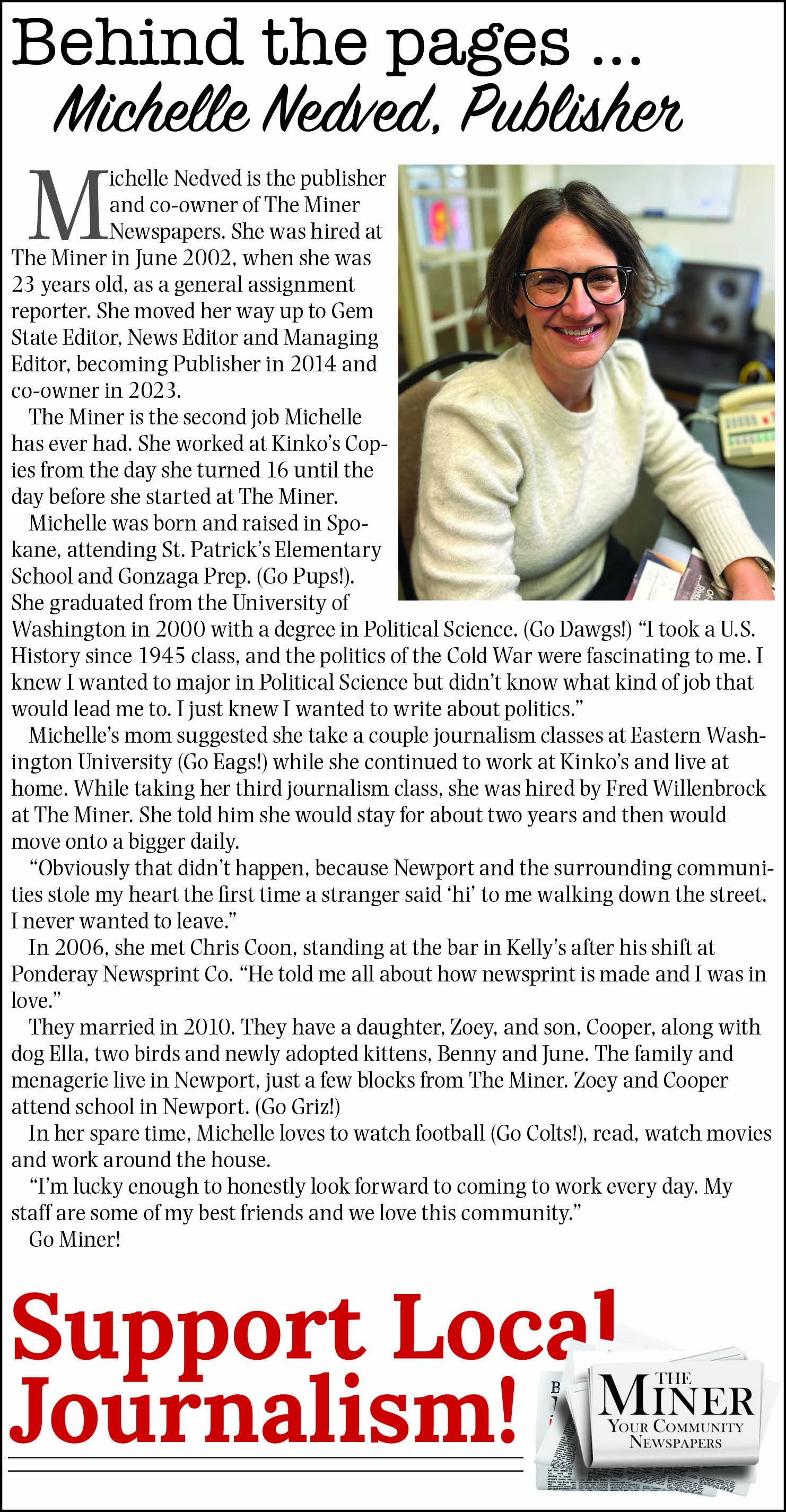NEWPORT – The reconciliation bill, House Bill No. 1, the One Big Beautiful Bill Act, that passed in the U.S. House of Representatives by one vote, would make good on nearly all of President Donald Trump’s campaign promises, U.S. Rep. Michael Baumgartner, R-Spokane, says. Baumgartner sat down with The Miner last week for an interview Friday, June 20. Baumgartner joined nearly all his Republican colleagues in voting for the bill, which didn’t receive any Democratic support. “When you look at the Big Beautiful Bill, it really is an omnibus bill that encapsulates many if not all of President Trump’s most prominent campaign promises,” Baumgartner says. He says if you see the bill as what voters elected Trump to do, you see it as a good piece of legislation. “But it is not a silver bullet for all that ails the American republic. If you have other considerations, things to work on or big challenges, that’s a real concern. Things like the national debt we have to deal with.”
Baumgartner is concerned about national debt.
“This year the federal government will spend $7 trillion on the back of $5 trillion in tax revenue,” he says, about a 20% budget deficit. “We’re already $37 trillion in debt and we’re going to spend $7 trillion on the back of $5 trillion. So we have a structural spending imbalance in this country.”
He said the U.S. has been able to run up the debt because it has the world’s most stable currency, the most dynamic economy and the strongest military, which allowed the U.S. to borrow money at much lower rates than other countries.
“But at some point, economic gravity applies to America as well, too,” he says.
But HR 1 must pass in one form or another, he says.
“I don’t think failure is an option in One Big Beautiful Bill,” he says. It is a reconciliation bill. One of the requirements of passing legislation through the reconciliation process as opposed to more traditional legislation, means the bill can’t add to the federal deficit over 10 years. Because of that, when the 2017 tax cuts were passed as reconciliation legislation, only half of the tax cuts could be made permanent.
“If Republicans do not stick together and pass a version of the One Big Beautiful Bill, HR 1, as it’s known in the House, the average American family will get a 16 to 20 percent tax increase. That would not be good for the economy and it also would be very bad for Republicans politically.”
HR 1 includes things that Trump didn’t campaign on, including renewing the Secure Rural Schools Act, which provides counties and school districts much needed money because so much of the publicly owned land in counties like Pend Oreille and Bonner counties doesn’t generate property taxes.
The Secure Rural Schools Act wasn’t voted on in the last legislative session in the House, even though it was passed by the Senate. Because of that, Pend Oreille County commissioner Brian Smiley, also a Republican, recently flew to Washington D.C. to lobby for passage.
Funding the Secure Rural Schools Act is included in the One Big Beautiful Bill Act, Baumgartner says.
Baumgartner says he is not totally knowledgeable about why the Secure Rural Schools wasn’t brought up for a vote in the House last year.
“I don’t know why it didn’t happen,” he says. “I don’t know the lay of the land on Secure Rural Schools.”
He speculates that it may have been held up because it possibly included some Democratic considerations about urban issues.
“I don’t know,” he says. “I just know that we have sponsored it this year and that we’re trying to get it in the Big Beautiful Bill and if it doesn’t, we’ll just go to the general process with it.”
Baumgartner says the bill can advance as legislation outside of the reconciliation bill and such legislation has been introduced.
“I don’t know who the prime sponsor is, but I’m a co-sponsor on the bill,” he says.
He agrees it is important to rural counties. “It’s huge,” he says.
Baumgartner’s name doesn’t appear on a list of 70 co-sponsors of H.R. 1383 Secure Rural Schools Reauthorization Act of 2025 that appears on the Congress. gov website. The bill’s primary sponsor is Doug LaMalfa, a Republican from California. The bill doesn’t have any co-sponsors from Washington state listed. Both of Idaho’s two U.S. Representatives, Russ Fulcher and Michael Simpson, both Republicans, are listed as co-sponsors.
The Big Beautiful Bill Act makes two changes to Medicaid payments, Baumgartner says. It would stop incentives for states to put illegal migrants on Medicaid and have work requirements for able bodied adults.
“When you add those two provisions – those are popular with 80 percent of the American people – we believe that creates more money for Medicaid for the truly most needy,” Baumgartner says.
He says Medicaid will still be challenging for hospitals.
“Even with these reforms, there will be more money spent on Medicaid next year than there is this year,” he says. He says some in the House want to make Medicaid a block grant, rather than giving states a percentage of what they spend. He says that’s not in the bill this year but at some point, entitlement reform will have to happen.
He said the reason “the middle ground” was taken on Medicaid was to protect rural hospitals.
He said he voted against Medicaid expansion when he was in the state senate because he didn’t think it was sustainable.
One of the things that the Senate is proposing in its version of the One Big Beautiful Bill Act is the sale of public lands.
Baumgartner says it’s not in the House version because Rep. Ryan Zinke, R-Mont., said it would draw too much opposition. But the Senate version has it.
Baumgartner made several stops while he was in Pend Oreille County. He visited the Port of Pend Oreille’s locomotive refurbishing shop, held a town hall for veterans at the American Legion Hall in Cusick and stopped by the Usk Bridge, where he met with Pend Oreille County commissioners and Mike Lithgow from the Kalispel Tribe’s Natural Resources Department. The county commissioners and Lithgow were seeking support for $80 million from the federal government for bridge replacement.
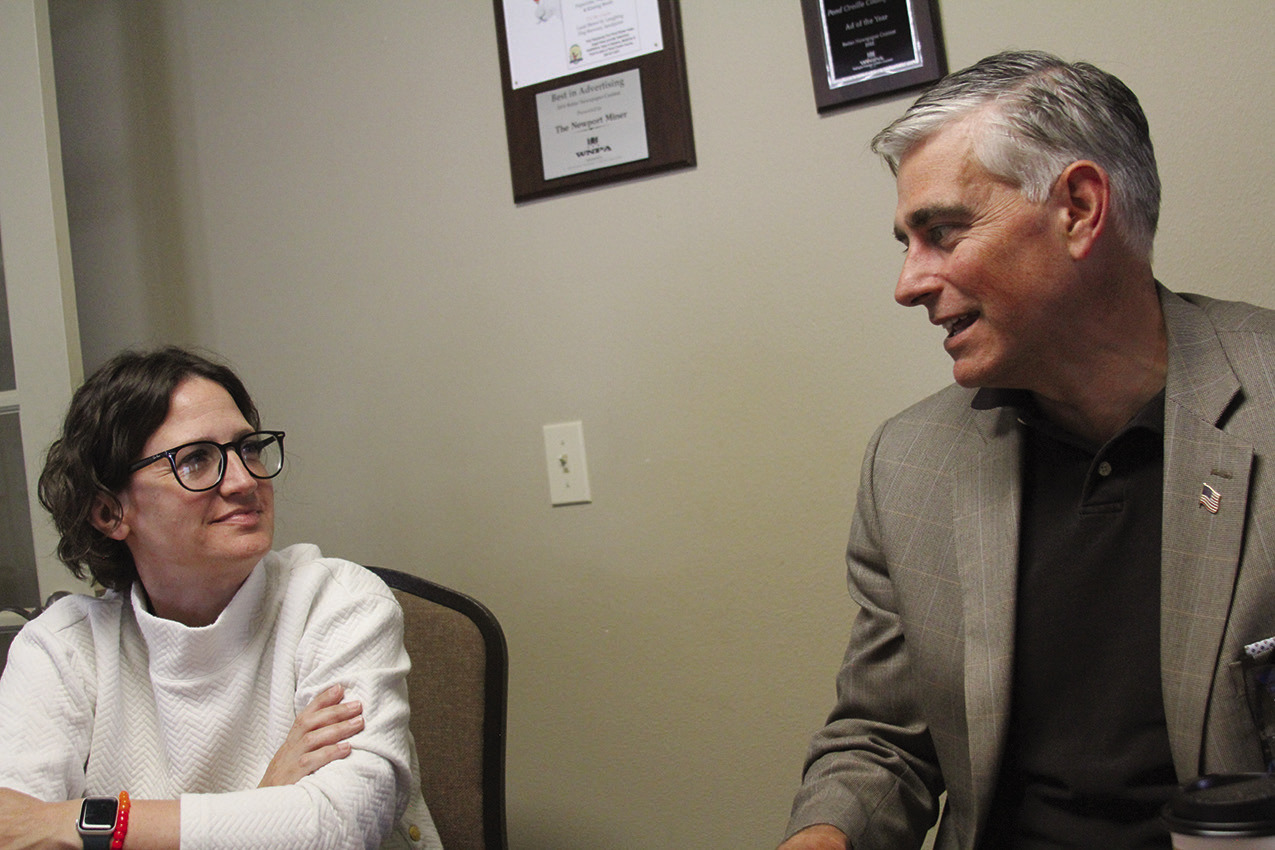
.png)

